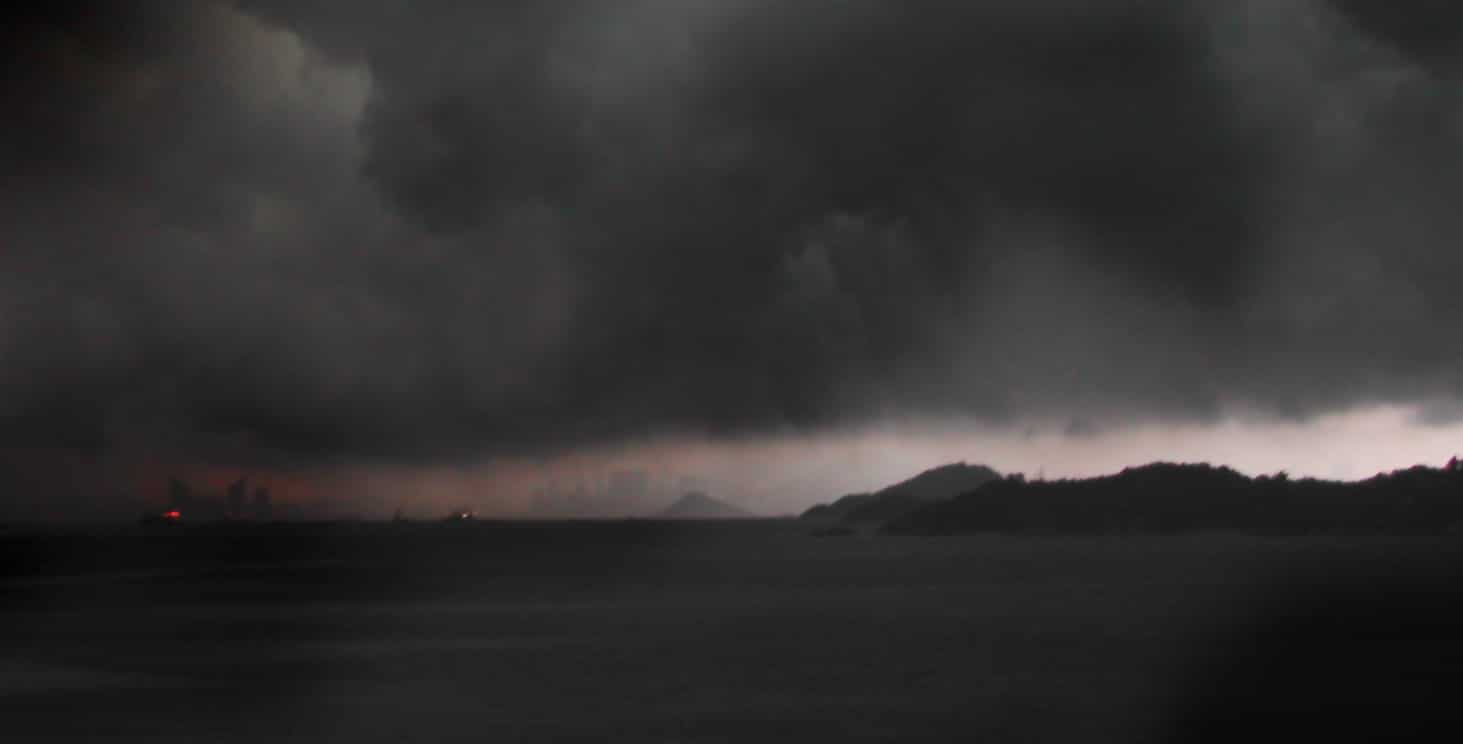
I sit here at the time I write this, being buried beneath the snows of winter storm Nemo. This No-Name storm got me thinking about weather in a more literary sense. Weather is something so common that it plays a part in the daily life of nearly everyone on Earth. It pervades small talk, takes up a widget on the home screen of your phone, and runs in every newspaper and television newscast. It makes sense that we use weather in fiction as well.
Mood
That the weather can set the mood of a scene is common to both literature and film. Thunderstorms are dramatic, tense, mysterious. Fresh-fallen snow is serene, pastoral. It seems you can’t run after a distraught lover in anything less than a torrential downpour.
There are times when a story-teller wants to prepare a reader or viewer for what is about to come. It can stand in as a sort of vague foreshadowing, even if only a few moments or a few paragraphs in advance.
Example: Jurassic Park: Would the Tyrannosaurus scene have been so frightening under clear, sunny skies? Frightening, yes. As frightening, no.
Plot Device
In some cases, rather than provide a mood to a scene, the weather can become an active participant in the plot. Unless a story takes place entirely indoors or in a similarly isolated location (on a ship, space station, underground), weather is going to be at least a background element. Whether a freak storm causes a flight cancellation, a foggy morning causes a suspect to escape on foot and vanish, or a tornado carries you and your little dog (too) off to Oz, weather can create unexpected changes in carefully-wrought plans.
In many cases, plots revolve around competent characters whose circumstances are thrust beyond their control by the monumental and capricious forces of nature. It can act as both a humbling experience (no matter how powerful a man, he can’t control the weather) or as a means to put someone into a situation they would otherwise have avoided. Incompetent characters can have all sorts of misfortunes befall them with little prompting (the sitcom genre thrives on this premise). If you need to steer a hero along though, maybe a bit of weather will do the trick.
Example: In the Odyssey, Odysseus is prevented from reaching Ithaca by many things, but Poseidon’s sea storms are prominent among them.
World-Building
This is a favorite of mine, since world-building is a key element of the style of fantasy I write.
When building a world, you are responsible for convincing a reader that it could be real. Your license to alter reality extends only so far as your credibility in this regard. You are not restricted to normal, Earth-like weather in fiction, but any variance from that needs explanation. Internal consistency is the key, not any conformance to outside references, including the real world. It can rain frogs each day at noon during monsoon season, if you can justify it well enough.
The safer approach is just the judicious use of standard weather effects. When setting an outdoor scene, consider the season, consider the climate. If you satisfy those, you’re well off for verisimilitude. After that, consider the needs of your plot. It may be the rainy season, but would a rainy day ruin the picnic you planning to write? On the other hand, if you had a chase planned, that rain might actually serve two purposes: a plot element (slippery chase) and world-building (establishing that yes, it does rain in the rainy season).
In all other cases, the weather should be chosen according to what seems most appropriate to the season and climate. Don’t let yourself get into the habit of letting every day be partly cloudy, with a chance of boring.
Example: In Firehurler, Brannis and his men slog through Kelvie Forest in the rain. It could easily have been any autumn weather, but the rain afforded opportunities for different uses of magic to pop up.
The Enemy
Few inanimate forces can carry off the role of a villain like Mother Nature. Whether it be through delay, destruction of something dear to the protagonist, or simply an exercise in survival. The weather is coming, and the hero must deal with it.
“It can’t be bargained with. It can’t be reasoned with. It doesn’t feel pity, or remorse, or fear. And it absolutely will not stop, ever, until you are dead.” -Kyle Reese, Terminator.
He wasn’t talking about the weather there, but he well could have been. It is an agency that is beyond human control, utterly emotionless, and occasionally gives the impression that it’s out to get us. Why wouldn’t a character in the path of a Category 5 hurricane, stranded during his tropical vacation, feel like the weather was nothing less than his mortal enemy?
(Extreme) Example: The Day After Tomorrow. The whole of the movie was based on this premise. It was almost a reduction to absurdity of it. (maybe I didn’t need the “almost” in there)
Have good examples of how writers use weather in fiction? Examples where they went too far? Share in the comments.

Excellent observations. I love reading–and writing–stories where setting becomes almost another character, and weather can be one of the most dramatic characters of all!